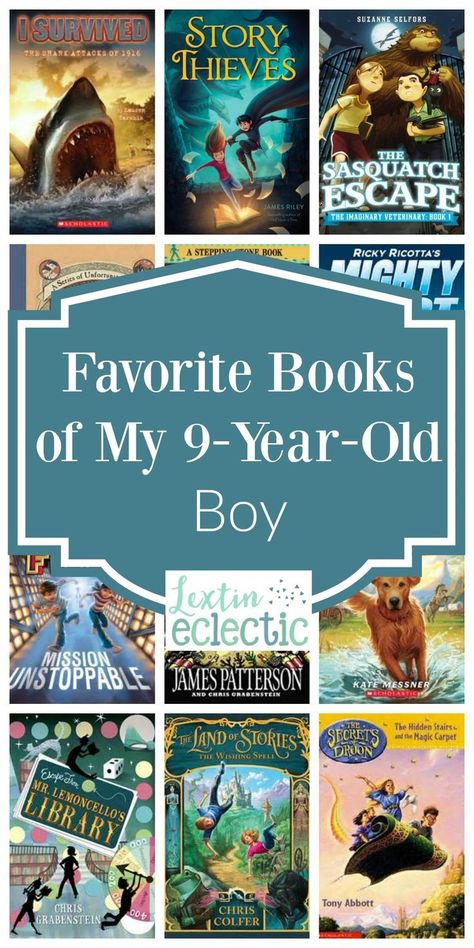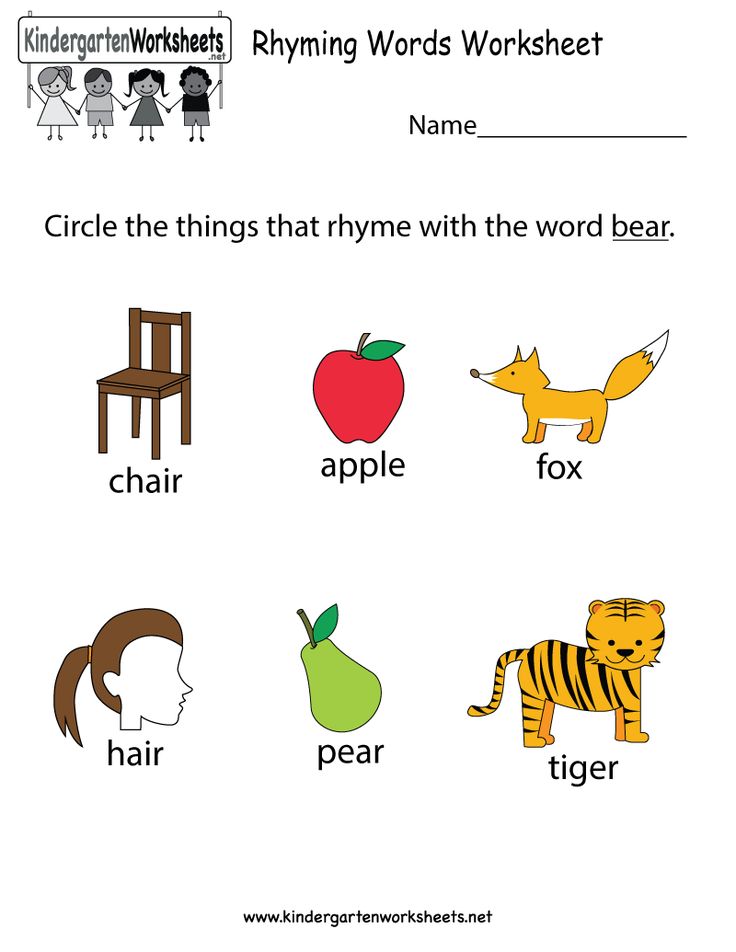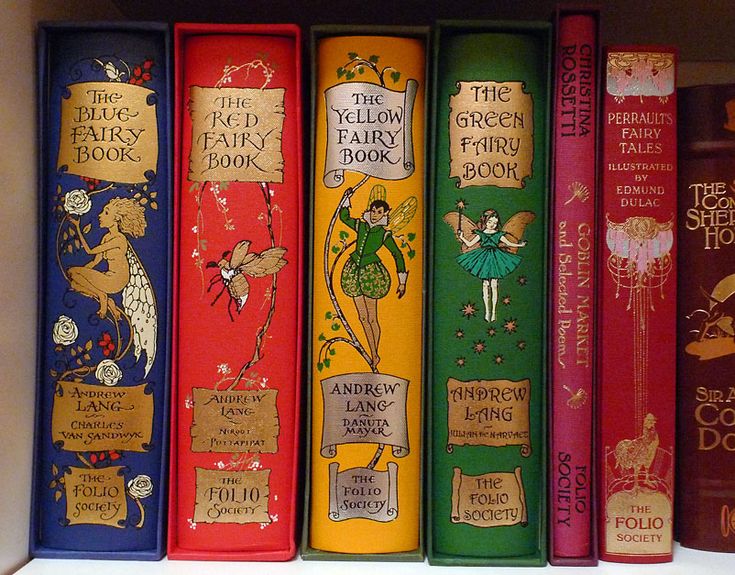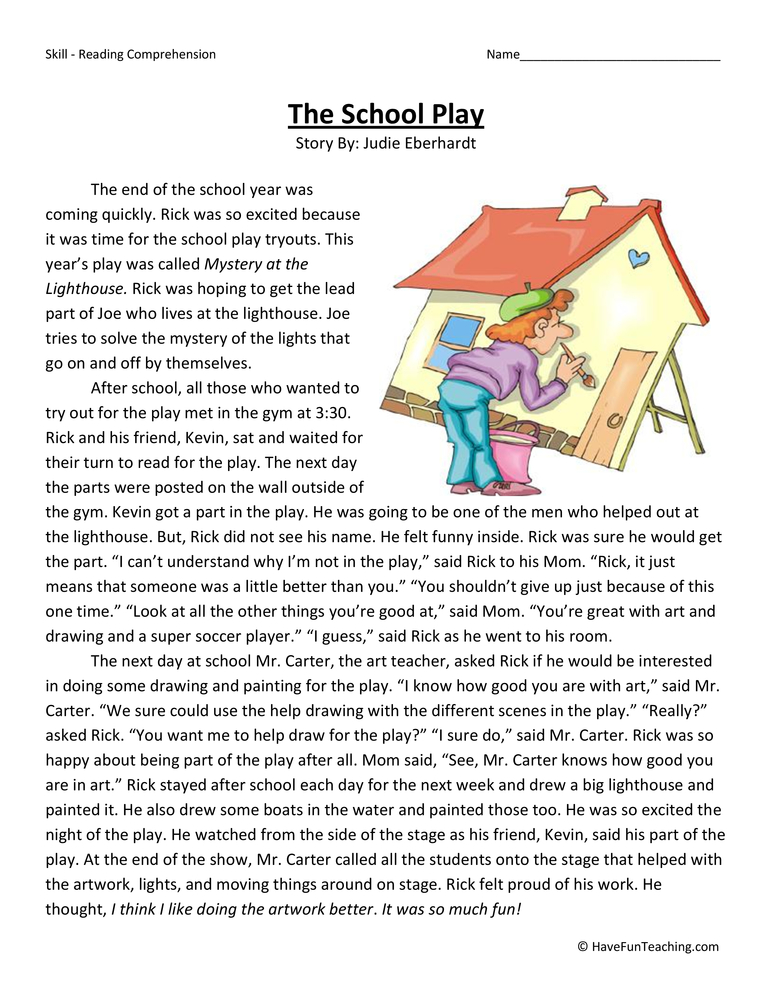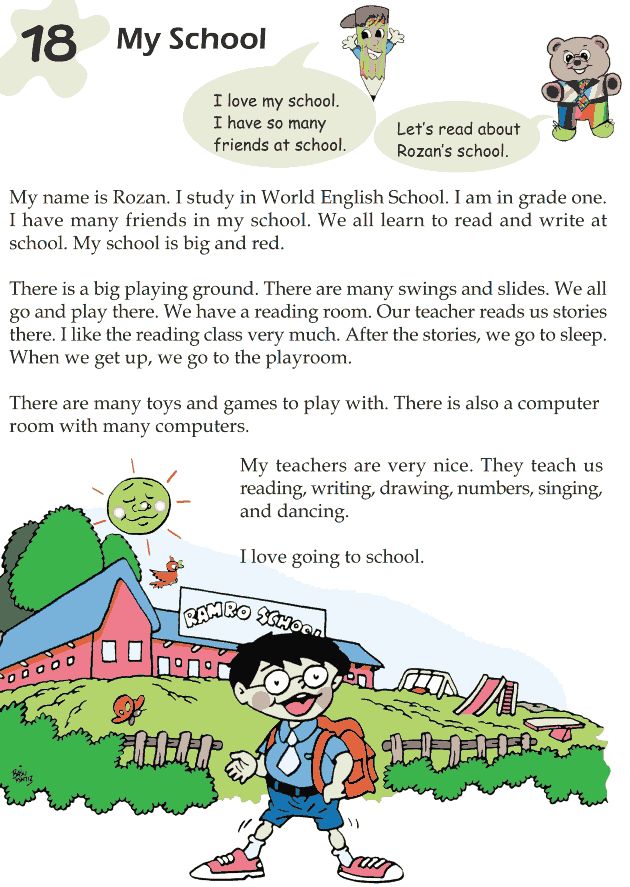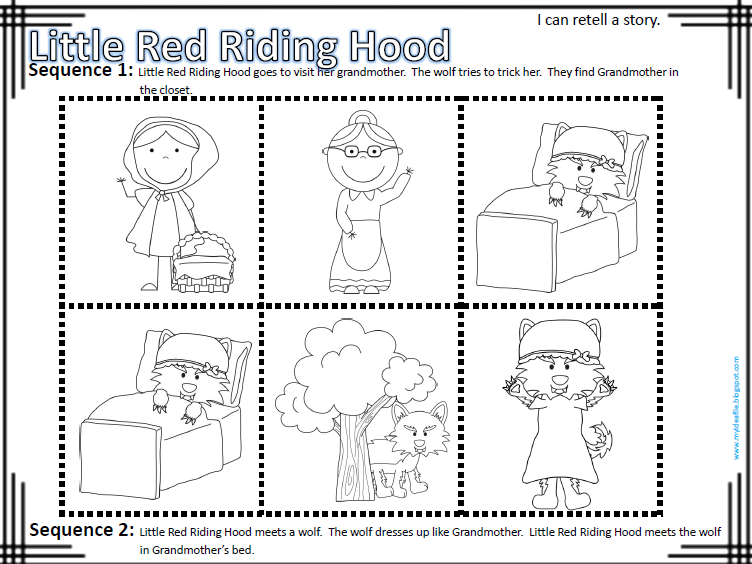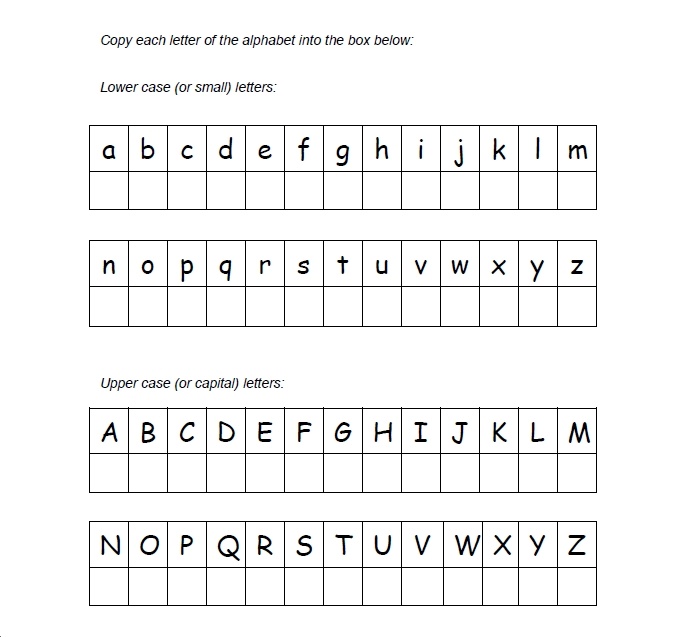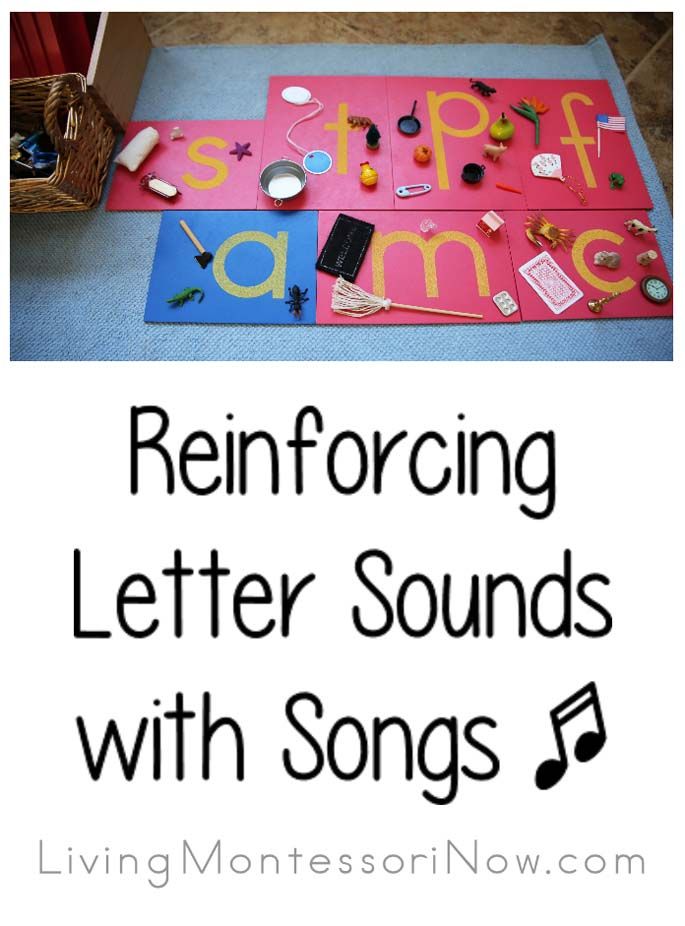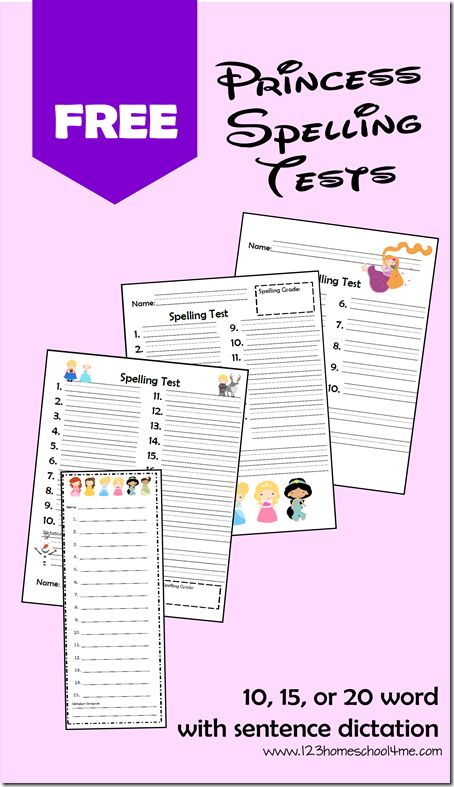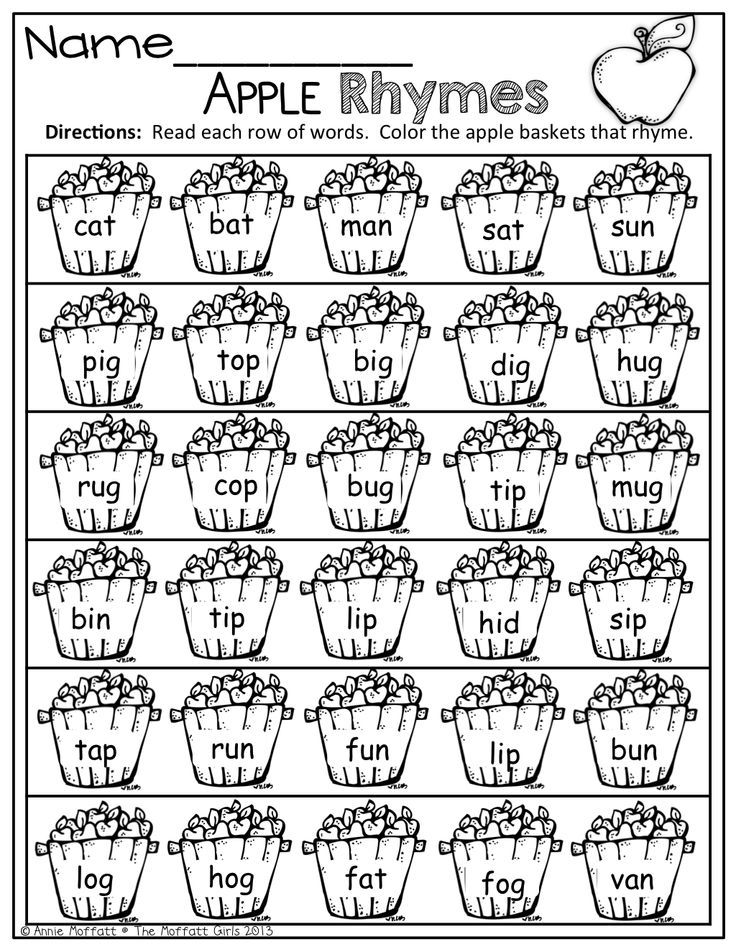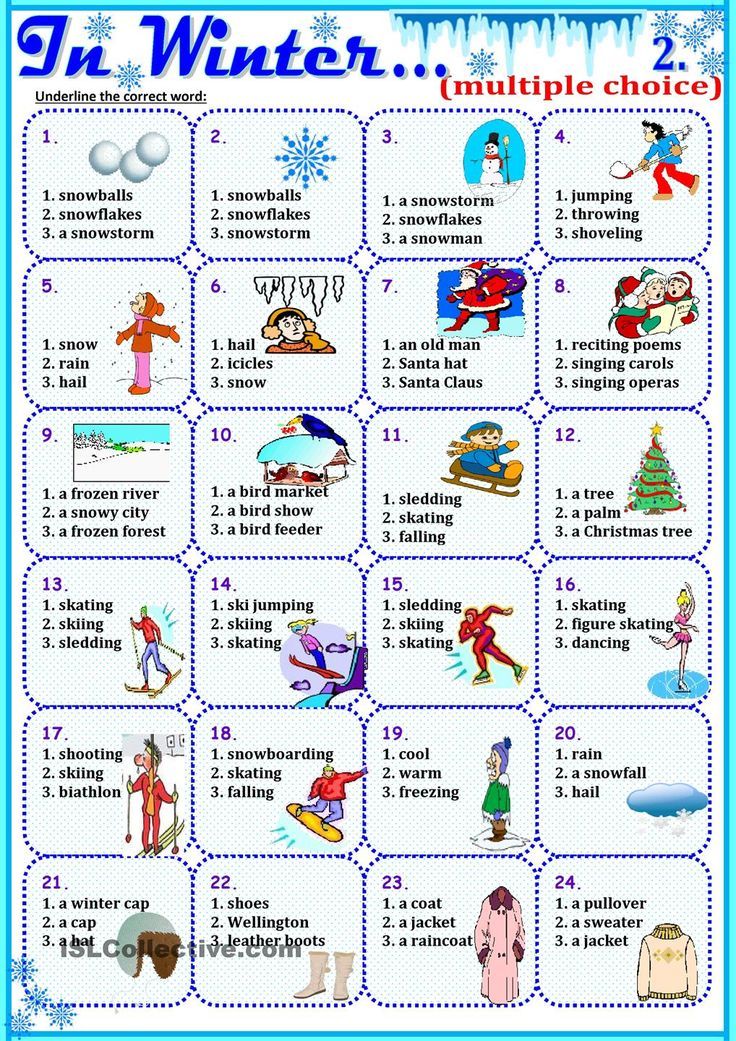9 year old struggling with reading
My 9-year-old has trouble reading. He is getting help from his special education teacher in school, but he's still at least two grade levels behind. Is there anything we can do at home to help him improve his reading skills?
Question:
My 9-year-old has trouble reading. He is getting help from his special education teacher in school, but he's still at least two grade levels behind. Is there anything we can do at home to help him improve his reading skills?
Answer:
Reading doesn't come naturally to some students, but there are many things you can do at home with your child to help improve his reading skills. The Reading is Fundamental website has a great list of 20 Ways for Parents to Encourage Reading, and Reading Rockets has a robust parent strategy section. You can find helpful suggestions at both of these sites. There are also a number of free games and activities online that can help encourage struggling or reluctant readers.
Depending on your son's reading level and maturity, some of these websites may feel too young, so it is important that you give him a variety of options and see what he likes best. A good resource to help you get started is Learning to Read with Multimedia Materials. The article discusses the different ways multimedia tools can be used to support reading instruction and provides a resource list with suggestions of different websites and games to help kids build reading skills. Starfall has a collection of online books and activities for different reading levels and ages. Students can hear words read aloud and read at their own pace. The section I'm Reading might be most appropriate for your son. Sylvan Learning has a free website called Book Adventure that may also be motivating for your son. Students read books, take a short quiz and earn points. Points can then be redeemed for prizes (books, games, etc.). Book Adventure also has a page for parents with suggestions for encouraging reading, making reading fun and recognizing reading challenges.
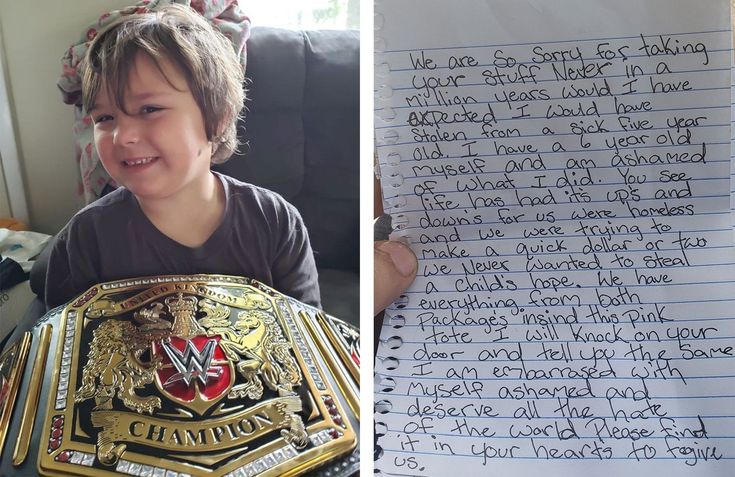 A game format can be a non-threatening way to practice reading. If your son enjoys the game or wants to find out what happens next, he may be more motivated to read. PBS has a great selection of educational games and activities for students. PBS Kids Cyberchase is designed for slightly older elementary or middle school students. While not a reading game specifically, there is a significant amount of text for students to read. All spoken dialogue is also shown on screen, and players have to read signs and other information in the game. This type of experience may help your son practice reading without even realizing it. The Kaboose Family Network also has a page with a variety of free online reading and spelling games for different age groups. If you're interested in purchasing a software program for use at home, educational publishers such as Tom Snyder and Houghton Mifflin sell a number of programs, both games and skill building tools that can help struggling readers. You can also search for and compare reading programs using the Tech Matrix.
A game format can be a non-threatening way to practice reading. If your son enjoys the game or wants to find out what happens next, he may be more motivated to read. PBS has a great selection of educational games and activities for students. PBS Kids Cyberchase is designed for slightly older elementary or middle school students. While not a reading game specifically, there is a significant amount of text for students to read. All spoken dialogue is also shown on screen, and players have to read signs and other information in the game. This type of experience may help your son practice reading without even realizing it. The Kaboose Family Network also has a page with a variety of free online reading and spelling games for different age groups. If you're interested in purchasing a software program for use at home, educational publishers such as Tom Snyder and Houghton Mifflin sell a number of programs, both games and skill building tools that can help struggling readers. You can also search for and compare reading programs using the Tech Matrix.
Tags:
- Parent Engagement
- Special Education
- Educational Technology
9 Year Old Struggling with Reading: Homeschooling Toolbox
Reading is a language skill that is taught to children early on in school. However, with school closures all across the country due to the coronavirus pandemic, many children are now in danger of not getting that reading instruction that is so important.
The children that are already struggling with reading are now in greater danger of not getting the extra help they need. However, there are different tools you can use at home to help your struggling reader get through their reading hump and actually enjoy reading.
Most kids are able to read fluently and independently by age 7-8 years old or 2nd-3rd grade. However, some kids might struggle well after this reading benchmark. If you have a 9 year old struggling with reading, there are strategies you can use at home to get them to their reading level.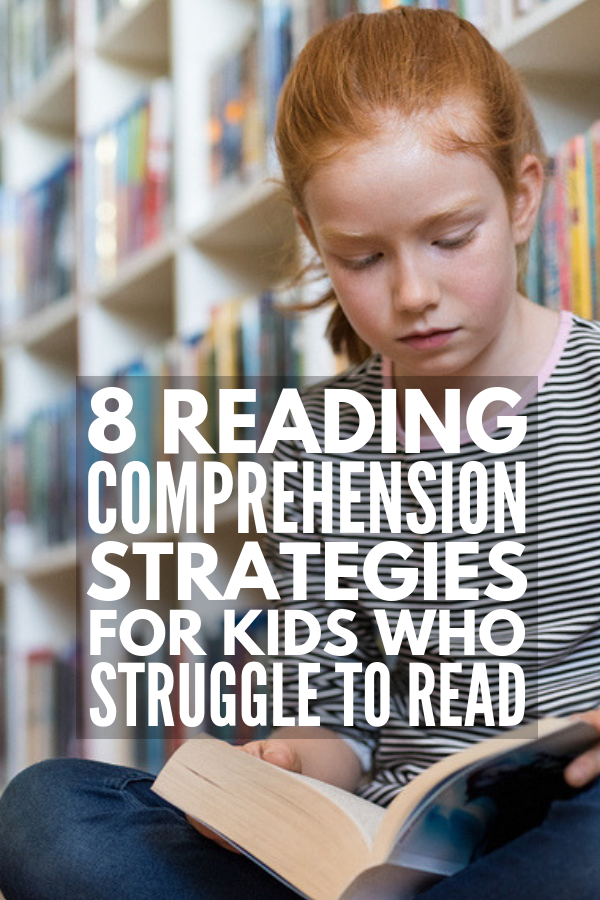
Why is my child having a hard time reading?
While most children are able to read by age 7-8 years old, there are some that are just late bloomers.
Experts emphasize that if your child is still not able to read fluently or independently by this age to not panic but to be aware of signs that your child is struggling. Some kids might be frustrated with their lack of reading skills compared to their classmates. They might avoid homework or just not want to go to school altogether.
There are many different reasons why your child is struggling with reading. Here are some 3 things to consider if your 9 year old struggles with reading:
- Reading instruction they are receiving
- Underlying problems such as vision or dyslexia
- Reading experience and background
Let’s take a closer look at each one of these issues.
Reading instructionOne reason your child could be struggling with reading is the instruction they are receiving.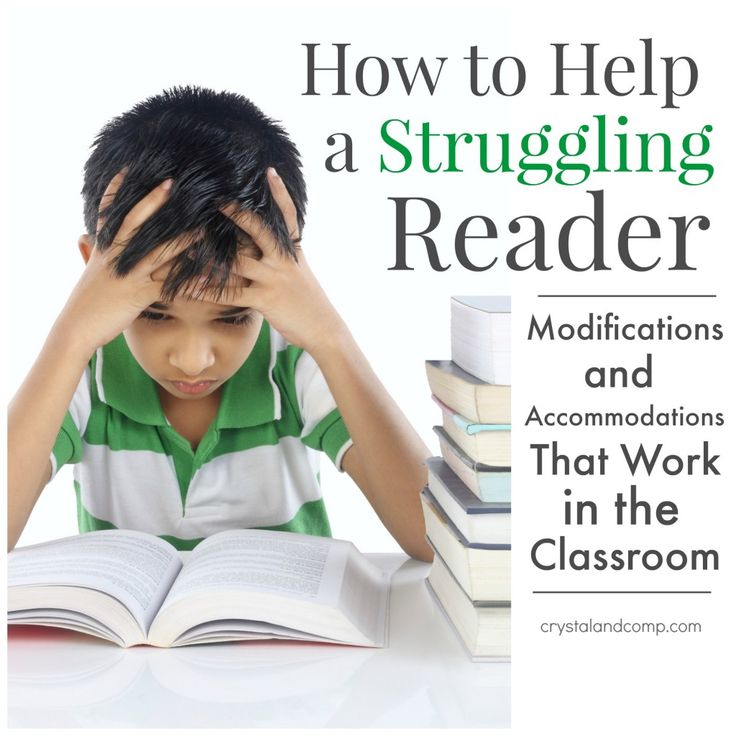 Every child learns differently, so your child might not be getting instruction that fits the way that they learn.
Every child learns differently, so your child might not be getting instruction that fits the way that they learn.
Some kids are more visual or spatial learners while others are more oral or auditory learners. Talking to your child’s teacher can help you get a sense of the methods and strategies they are using in the classroom. You can then supplement with more tailored practice at home.
Underlying problemsThere could also be problems your child is struggling with that might not be so apparent. They could be having actual physical issues such as vision or auditory problems that are making it difficult for them to learn to read.
A learning disability such as dyslexia might also be an issue or they could be struggling with their concentration. These are underlying problems that could be affecting their reading progress and thus their overall learning.
Experience with readingAnother major factor to consider is their overall experience with reading. Children who come from families that read often during free time or frequently keep books at home are likely to be more successful readers.
Children who come from families that read often during free time or frequently keep books at home are likely to be more successful readers.
You might also want to consider your family history. Is there a pattern in your family of struggling readers? Many students who struggle with reading even at an older age have a family history of struggling readers.
How can I help my 9-year-old to read?
Reading can be frustrating especially for children who are behind their reading level. Also, 9 year olds are beginning to read more advanced texts in school.
This means that not only do they need to be able to understand what they are reading but also need to be able to think critically about them. Reading is becoming a skill that they are using to learn, not a skill they are trying to learn.
We present you a Homeschooling Toolbox that parents can easily implement to help your child get back on track to their reading level:
- Read to and with them – Reading to your child gives them a model of good reading.
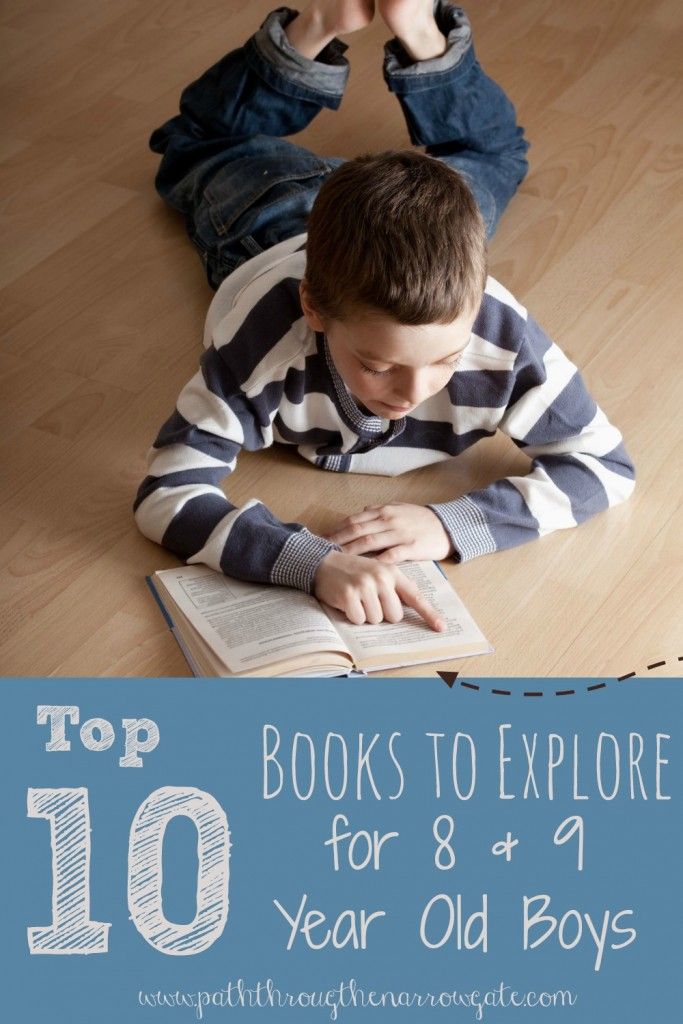 Reading with them helps give them the individual support and guidance they need. This also helps create a bond that can help motivate them to practice reading more often.
Reading with them helps give them the individual support and guidance they need. This also helps create a bond that can help motivate them to practice reading more often. - Schedule family reading time – A key part of practicing reading at home is to keep it consistent. When you schedule reading time at home, this shows your child that reading is something to prioritize and enjoy.
- Keep a wide variety of books at home – Sometimes a child might be struggling with reading because the level of books they are reading is either too hard or too easy. Instead of only keeping books that are at or below their reading level, you should also have books that are one or two levels above. This gives them the option to stay at a comfortable pace or to challenge themselves.
- Let them choose their reading materials – Instead of choosing the books for them, you can let your child choose the books they read. This keeps them interested and invested in reading more.
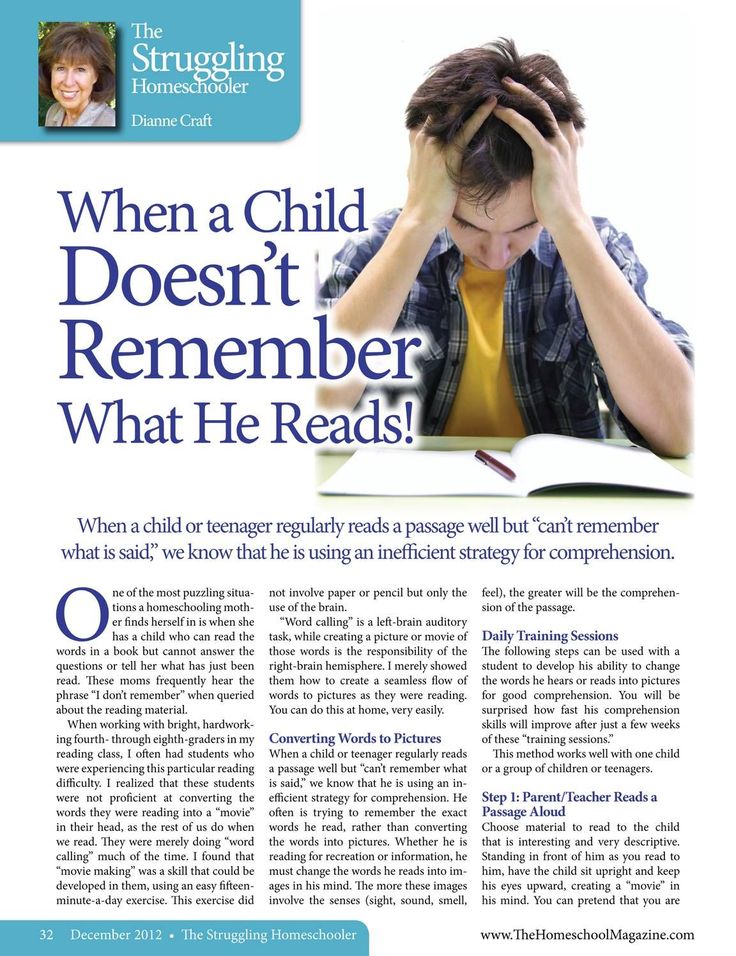
- Discuss their reading with them – Talking about what they are reading shows your child that you are interested in their progress and can encourage them to continue reading. This is also a great way to practice and check on their reading comprehension. If they are able to talk to you about what they are reading, then they are able to actually understand and think about what they are reading.
- Gamify reading – A big factor in helping older kids to get out of struggling with reading is to make reading fun for them. Technology and web games are a big part of their world so incorporate that aspect into their reading practice. Using reading apps such as Readability can make reading fun and interactive. Readability provides original materials at various levels, so the app can adjust to your child’s reading progress. It also provides real-time feedback, so your child can know exactly how to improve.
All these at-home strategies can help your child improve their reading even while they are at home during school closures.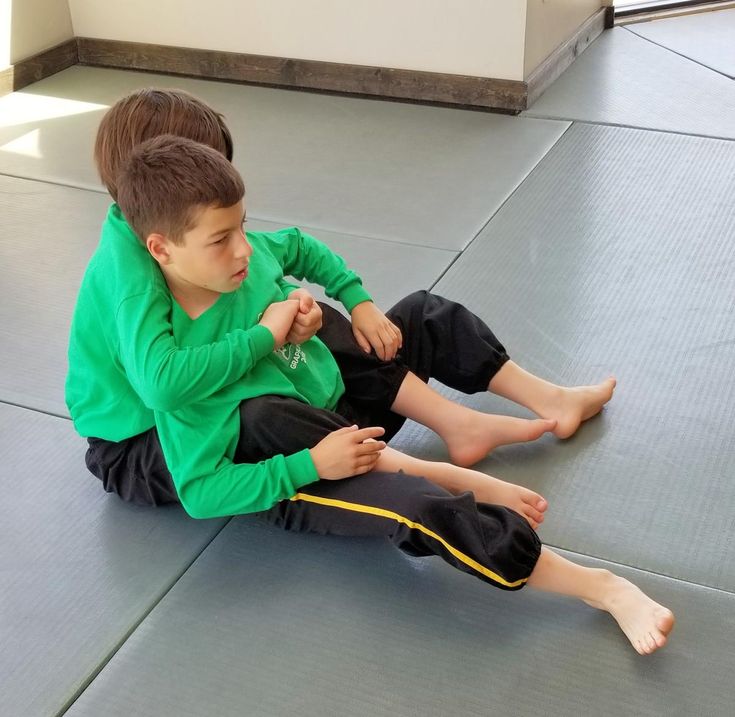 The key to maintaining their reading instruction at home is to be patient and encouraging.
The key to maintaining their reading instruction at home is to be patient and encouraging.
Many kids today are already stressed about the coronavirus disease. Positive feedback can help your child’s mental health. In order to motivate them, it is important that they see the progress they are making with reading, even if it is minor.
It can be easy to rely on endless screentime and video games when your children are stuck at home. However, making sure they are using educational apps and games can help them not just maintain their reading skills but also make them better.
You can easily implement all the tools above through a reading app like Readability that will help your child reach their reading goals and have fun in the process!
The child does not read well (Dyslexia) — 8 (499) 110-13-71
Why does the child read poorly? This question is relevant for parents of many children of school and preschool age, and in this article we will try to give an exhaustive answer to it.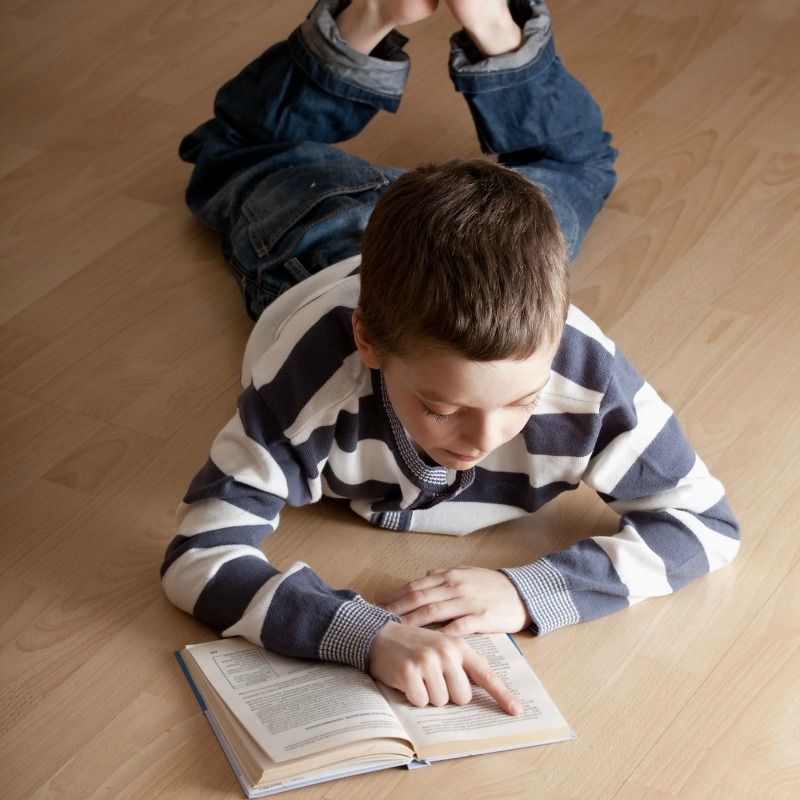
In modern society, the problem of depreciation of scientific terminology is quite common, often having nothing to do with reality. Dyslexia - a similar “diagnosis” is attributed to situations where the child reads very poorly (in terms of speed, he lags behind the general regulatory requirements), “slips” off the line, does not see punctuation marks, reads exclusively by syllables, etc. Both collectively and individually, these signs greatly disturb parents and push them to rashly make inadequate diagnoses. But dyslexia may be just one of the stages in the formation of reading skills. Therefore, before asking the question “Why does a child read badly?”, It is important to consider the fact that few are able to learn to read as if by magic.
The child reads very poorly - the most common types of errors
There are a certain number of stages in the formation of this skill, and each child goes through them at his own individual speed. Its automation also takes place taking into account the characteristics of the maturation of the nervous system. However, parents mistakenly believe that this is an incredibly simple process, and there is nothing complicated in it. An exhausting training begins, which ultimately leads to the exhaustion of the child and the nervous breakdown of the parents. To avoid "false diagnoses" in situations where the child is 7, 8, 9, 10 years old does not read well, Yu.V. Mikadze in his work “Neuropsychology of childhood” identified the most common types of errors that children with dyslexia make, and their elimination requires corrective measures aimed at overcoming reading difficulties:
However, parents mistakenly believe that this is an incredibly simple process, and there is nothing complicated in it. An exhausting training begins, which ultimately leads to the exhaustion of the child and the nervous breakdown of the parents. To avoid "false diagnoses" in situations where the child is 7, 8, 9, 10 years old does not read well, Yu.V. Mikadze in his work “Neuropsychology of childhood” identified the most common types of errors that children with dyslexia make, and their elimination requires corrective measures aimed at overcoming reading difficulties:
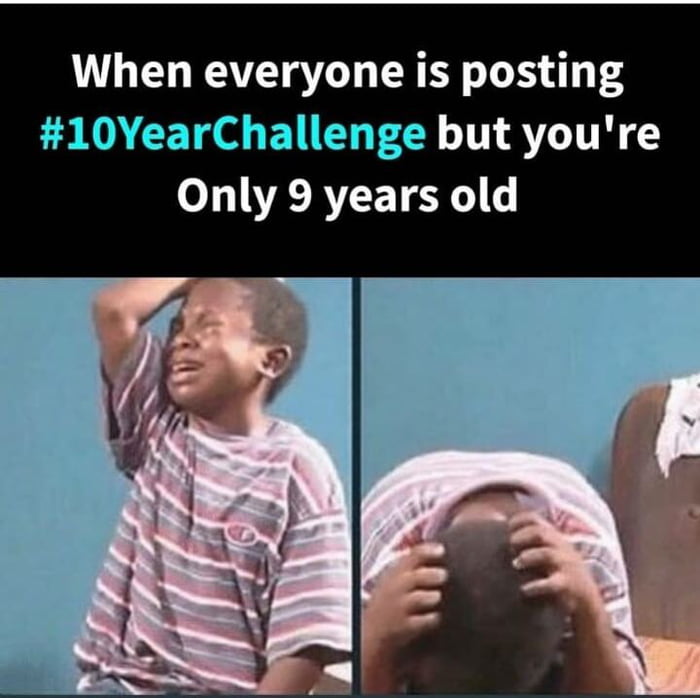 Distortion of case endings - others by hand.
Distortion of case endings - others by hand. How can you tell if your child has dyslexia? Help from specialists
Neuropsychological analysis of the mechanism of errors in reading allows you to identify the primary factor of the unformedness of a particular area of the brain, taking into account the entire symptom complex of reading features. For example, guessing reading is a subjective introduction of meaning into the reading process, a violation of semantic prediction controlled by holistic perception. The mechanism of these difficulties in reading is associated with regulatory defects and with the lack of a holistic (holistic) reading strategy. If the diagnosis revealed difficulties in phonemic or visual analysis, then, accordingly, we can talk about the underdevelopment of completely different mechanisms of the brain. Thus, the correctional-developing process will be aimed at the formation and development of a certain neuropsychological factor.
It is also necessary to distinguish neuropsychological mechanisms of dyslexia associated with the lack of formation of certain components of mental function from such neuro-ophthalmic pathologies as impaired eye movements or binocular vision.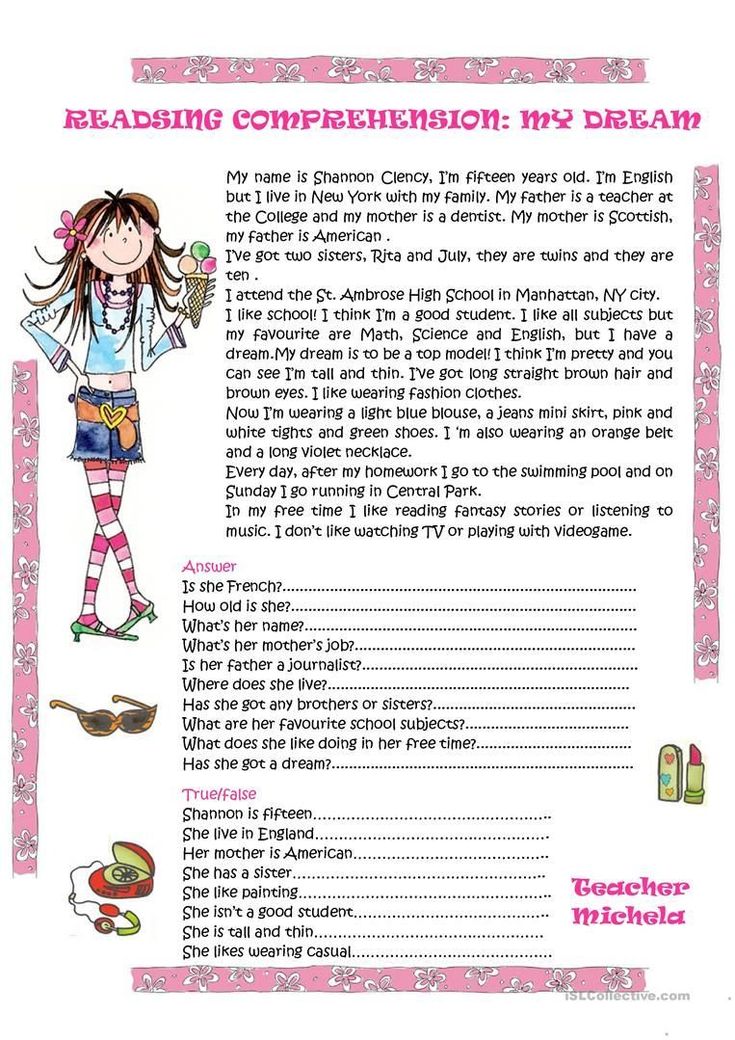
What should I do if my child does not read well in 1st, 2nd, 3rd or 4th grade?
The child does not read well - what to do? Timely appeal for professional help will allow you to cope with problems with the greatest efficiency.
In the Center for Neuropsychological Support, children with dyslexia are taught on an individual basis and only after a neuropsychological analysis has been carried out in accordance with effective and time-tested methods. The process includes various tasks for children with poor reading skills in grade 1 and older, as well as the use of special equipment that has no analogues in Russia.
Your child does not read well - causes
Reading is the most important human skill. Without this skill, it is impossible to fully interact with the world around us, to receive maximum information. In some cases, children have problems with the reproduction and perception of the text, reading is difficult for them. Modern parents often face such a situation and ask themselves the question: why does the baby read poorly, what should I do?
The main secrets of proper learning
Choosing the right approach to teaching kids to read allows you to achieve high results, and vice versa: mistakes in building a lesson plan will not allow you to develop high reading speed, good memorization of what you read.
Teachers and psychologists make a number of recommendations to make learning to read more fruitful:
- try to get people interested in reading literature. Acquaintance with the book is not only education, but also entertainment. It is important that a parent can convey this to their children.
- choose books by age. If the kid cannot understand literature, then reading will not arouse interest in him.
- read before bed. So the plot of a fairy tale or story will be better absorbed and remembered.
- Discuss what you have read. This trains the memory of the baby, improves his speech. Among other things, he will learn to better express his thoughts, explain his point of view.
Many parents strive to quickly develop a high reading speed in their children. This is not entirely true, because first it is most important to develop a good understanding and memorization of the text. Sometimes, already in the first lessons, children have problems with the correct reproduction of words.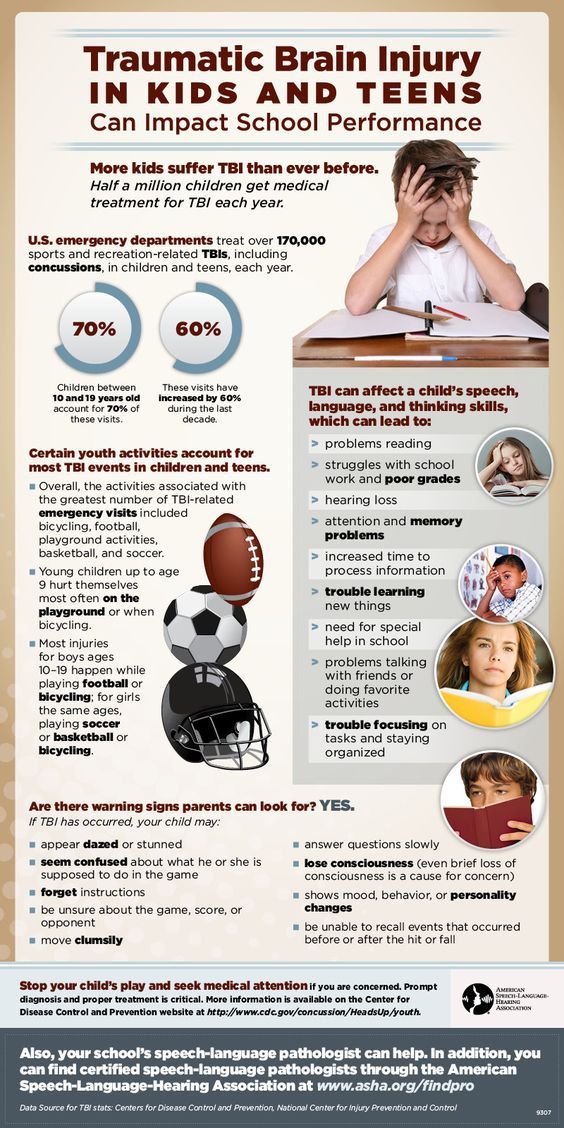 If this is observed, then it is necessary to establish the cause of such errors, because sometimes they are a sign of various disturbances in the perception of information.
If this is observed, then it is necessary to establish the cause of such errors, because sometimes they are a sign of various disturbances in the perception of information.
Why children read slowly
The reasons why a child reads slowly and does not remember what he read can be very different. The most common of these is the wrong approach to teaching literacy. When classes are inconsistent, he often does not have time to learn and consolidate any of the stages. This forms the wrong skill of reproducing text in him, for example, he reads letter by letter when it is time to read the whole word, or does not know how to break the word into syllables.
The child will also read slowly if he has a small vocabulary. Even in simple text, he will stutter over many unfamiliar words. In order to avoid this, it is necessary to read fairy tales and stories to the child from an early age. So he will develop his horizons, as well as enrich his speech.
Sometimes children cannot keep their attention on the text for a long time, the speed and quality of its reproduction suffer from this.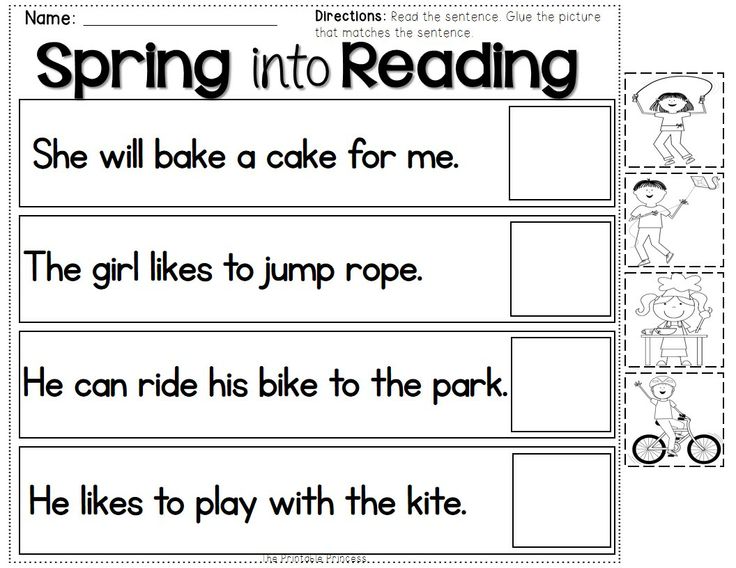 But babies whose parents engage in activities that require concentration are less likely to suffer from absent-mindedness. Concentration of attention is excellently developed by modeling, drawing, solving simple puzzles.
But babies whose parents engage in activities that require concentration are less likely to suffer from absent-mindedness. Concentration of attention is excellently developed by modeling, drawing, solving simple puzzles.
Poorly developed memory can make it difficult for a child to retell what they have read. Try to ask the baby more often about how his day went, what he learned new, what he did. Trains memorization and retelling of the plot of a favorite cartoon, a fairy tale.
Often the reason that children do not read well is the presence of problems with articulation. Despite the fact that in most kindergartens a speech therapist works with kids, it is also necessary to work out the pronunciation of sounds at home.
But what if the child does not read well, even if the parents follow all the recommendations? There is a possibility that this is his individual feature.
A child reads syllables backwards
A few decades ago, teachers had a different attitude to the fact that some children do not read well: they confuse syllables with each other, because of this they do not understand what they read.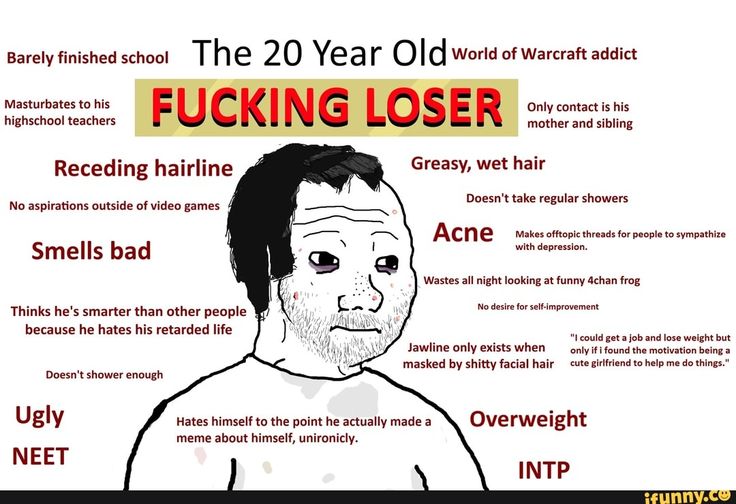 Then it was believed that the reason for such problems in the perception of the text lies in laziness and unwillingness to practice, improve their skills.
Then it was believed that the reason for such problems in the perception of the text lies in laziness and unwillingness to practice, improve their skills.
Now such errors are associated with dyslexia - a violation of the ability to read and write text. At the same time, the intelligence of such children, as well as the general ability to learn, is not lower than that of others. According to statistics, in Europe, about 5-10% of babies suffer from various forms of dyslexia, so this problem is quite common.
Thanks to the Internet, in the modern world, information has become available to almost everyone. So they started talking about such a common problem as dyslexia. This violation can no longer surprise teachers, psychologists, speech therapists of our time. Existing methods of dealing with dyslexia allow you to successfully correct the perception of the text, and thereby defeat it.
Most often, this problem manifests itself in the fact that the child confuses letters, swaps syllables, or reads them backwards.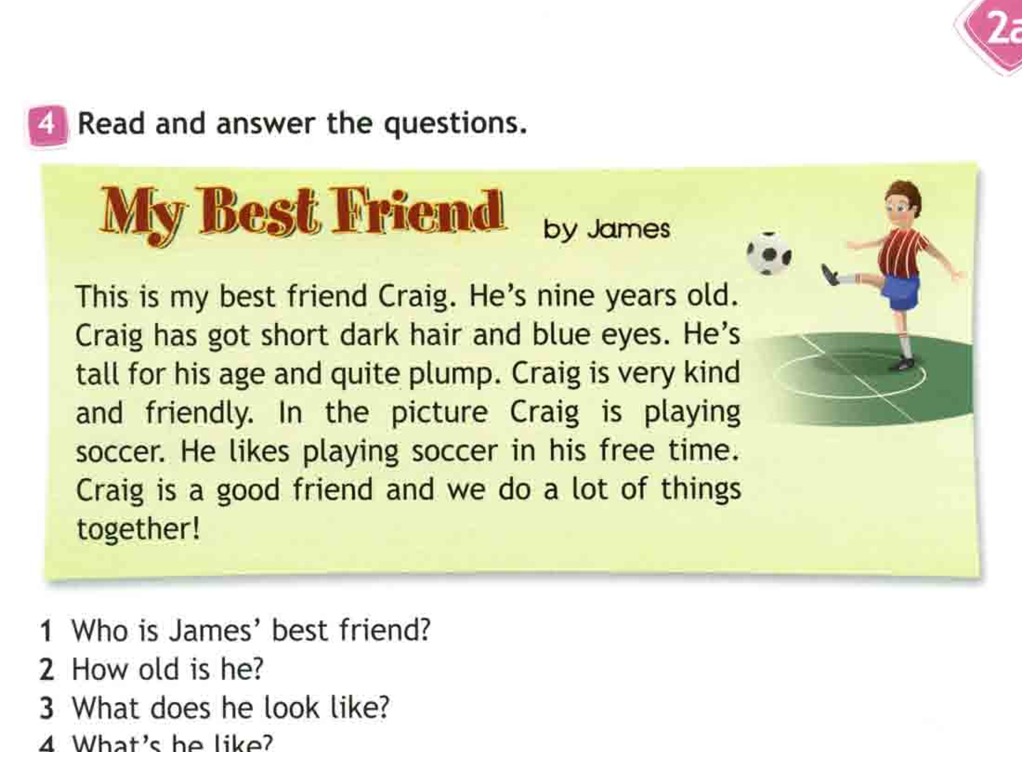 Because of this, he fails to read the text correctly, as well as correctly understand its meaning. Some children with dyslexia are able to read text correctly, but do not remember what they read at all. If the parent does not pay due attention to this violation, then it can also cause dysgraphia - the inability to write correctly, in which grammatical errors are made, letters and syllables are confused.
Because of this, he fails to read the text correctly, as well as correctly understand its meaning. Some children with dyslexia are able to read text correctly, but do not remember what they read at all. If the parent does not pay due attention to this violation, then it can also cause dysgraphia - the inability to write correctly, in which grammatical errors are made, letters and syllables are confused.
It is important to understand that only a specialist can determine whether a child is truly dyslexic. A qualified speech therapist will not only be able to identify this problem, but also correct it. Usually, dyslexia manifests itself already at the very beginning of teaching children to read, therefore, if you suspect it, you should immediately seek the advice of a specialist.
Corrective work takes a different time in each case. In addition to classes with a specialist, it is important to create a favorable atmosphere around the child, not to focus on his problem, not to cultivate complexes in him.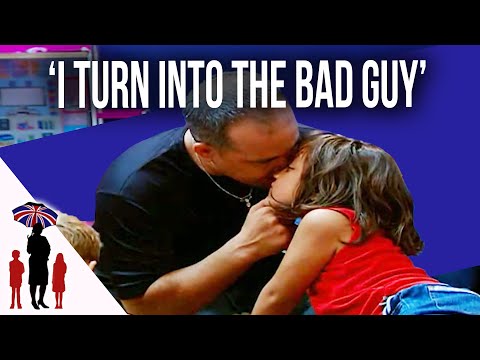 The joint work of the parent, speech therapist and child will allow the baby to overcome such an obstacle as dyslexia.
The joint work of the parent, speech therapist and child will allow the baby to overcome such an obstacle as dyslexia.
Educators' advice on teaching reading
Educators and child psychologists do not recommend starting reading instruction before the age of 5. Until this age, kids should spend more time playing, because it is their way to learn about the world around them. Until the age of 5, children are not yet able to concentrate on information in the form of symbols, they do not remember it well.
5-7 years is the ideal age for learning to read. At this time, the intellect of children is already sufficiently developed to master literacy and prepare for schooling. Despite the fact that for admission to the 1st grade of general educational institutions it is not required to be able to read, possession of this skill is desirable, first of all, for the baby himself. So it will be easier for him to be given the school curriculum, which means that he will be less tired from classes in the classroom and doing homework.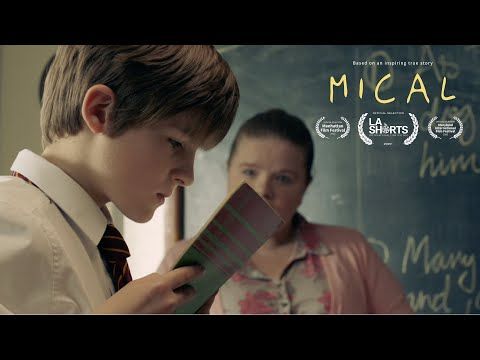
Learning to read should be smooth and consistent. Classes begin with a sound stage. On them, the baby learns that words consist of sounds, learns to distinguish them. The sound stage is very important, because if not enough attention is paid to it, then this can lead to problems in learning to read in the future. By the end of this learning period, the child will learn to separate simple words into sounds, for example, “m-a-m-a”, “p-a-p-a”, “k-o-t”, “d-o-m” .
When the sound stage is well mastered by the baby, they move on to the letter stage. On it, children learn to compare sounds and letters, memorize the alphabet. Special cubes and the alphabet will be a good help, classes with them are easier for the child. When the alphabet is mastered, the baby learns to put letters into syllables, and then into words.
It is important to pay special attention to each stage of learning, otherwise children may subsequently have problems when switching to fluent reading, which means that both reading speed and understanding of the text will suffer.